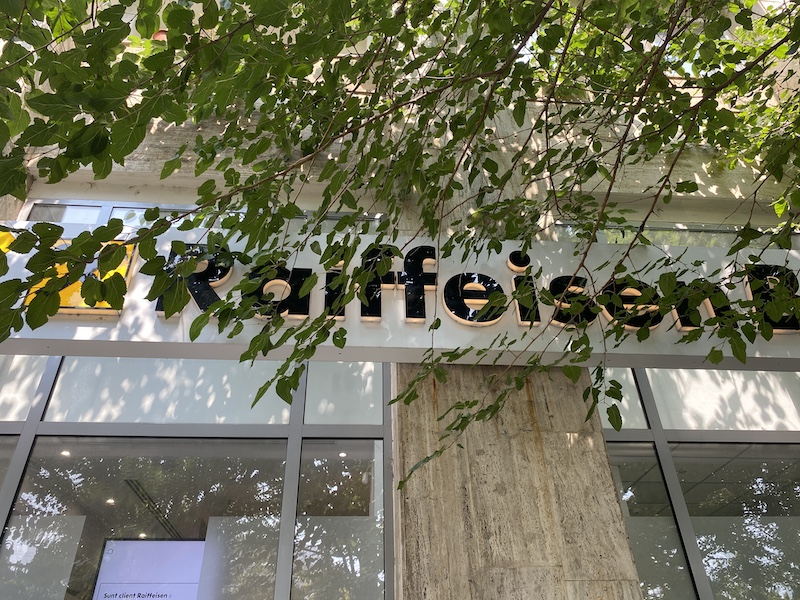Testimony of Chairman Bernanke on U.S. financial markets
 Autor: Bancherul.ro
Autor: Bancherul.ro
2008-09-23 15:06
Chairman Ben S. Bernanke
U.S. financial markets
Before the Committee on Banking, Housing, and Urban Affairs, U.S. Senate
September 23, 2008
Chairman Dodd, Senator Shelby, and members of the Committee, I appreciate this opportunity to discuss recent developments in financial markets and the economy. As you know, the U.S. economy continues to confront substantial challenges, including a weakening labor market and elevated inflation. Notably, stresses in financial markets have been high and have recently intensified significantly. If financial conditions fail to improve for a protracted period, the implications for the broader economy could be quite adverse.
The downturn in the housing market has been a key factor underlying both the strained condition of financial markets and the slowdown of the broader economy. In the financial sphere, falling home prices and rising mortgage delinquencies have led to major losses at many financial institutions, losses only partially replaced by the raising of new capital. Investor concerns about financial institutions increased over the summer, as mortgage-related assets deteriorated further and economic activity weakened. Among the firms under the greatest pressure were Fannie Mae and Freddie Mac, Lehman Brothers, and, more recently, American International Group (AIG). As investors lost confidence in them, these companies saw their access to liquidity and capital markets increasingly impaired and their stock prices drop sharply.
The Federal Reserve believes that, whenever possible, such difficulties should be addressed through private-sector arrangements--for example, by raising new equity capital, by negotiations leading to a merger or acquisition, or by an orderly wind-down. Government assistance should be given with the greatest of reluctance and only when the stability of the financial system, and, consequently, the health of the broader economy, is at risk. In the cases of Fannie Mae and Freddie Mac, however, capital raises of sufficient size appeared infeasible and the size and government-sponsored status of the two companies precluded a merger with or acquisition by another company. To avoid unacceptably large dislocations in the financial sector, the housing market, and the economy as a whole, the Federal Housing Finance Agency (FHFA) placed Fannie Mae and Freddie Mac into conservatorship, and the Treasury used its authority, granted by the Congress in July, to make available financial support to the two firms. The Federal Reserve, with which FHFA consulted on the conservatorship decision as specified in the July legislation, supported these steps as necessary and appropriate. We have seen benefits of this action in the form of lower mortgage rates, which should help the housing market.
The Federal Reserve and the Treasury attempted to identify private-sector approaches to avoid the imminent failures of AIG and Lehman Brothers, but none was forthcoming. In the case of AIG, the Federal Reserve, with the support of the Treasury, provided an emergency credit line to facilitate an orderly resolution. The Federal Reserve took this action because it judged that, in light of the prevailing market conditions and the size and composition of AIG’s obligations, a disorderly failure of AIG would have severely threatened global financial stability and, consequently, the performance of the U.S. economy. To mitigate concerns that this action would exacerbate moral hazard and encourage inappropriate risk-taking in the future, the Federal Reserve ensured that the terms of the credit extended to AIG imposed significant costs and constraints on the firm’s owners, managers, and creditors. The chief executive officer has been replaced. The collateral for the loan is the company itself, together with its subsidiaries.1 (Insurance policyholders and holders of AIG investment products are, however, fully protected.) Interest will accrue on the outstanding balance of the loan at a rate of three-month Libor plus 850 basis points, implying a current interest rate over 11 percent. In addition, the U.S. government will receive equity participation rights corresponding to a 79.9 percent equity interest in AIG and has the right to veto the payment of dividends to common and preferred shareholders, among other things.
In the case of Lehman Brothers, a major investment bank, the Federal Reserve and the Treasury declined to commit public funds to support the institution. The failure of Lehman posed risks. But the troubles at Lehman had been well known for some time, and investors clearly recognized--as evidenced, for example, by the high cost of insuring Lehman’s debt in the market for credit default swaps--that the failure of the firm was a significant possibility. Thus, we judged that investors and counterparties had had time to take precautionary measures.
While perhaps manageable in itself, Lehman’s default was combined with the unexpectedly rapid collapse of AIG, which together contributed to the development last week of extraordinarily turbulent conditions in global financial markets. These conditions caused equity prices to fall sharply, the cost of short-term credit--where available--to spike upward, and liquidity to dry up in many markets. Losses at a large money market mutual fund sparked extensive withdrawals from a number of such funds. A marked increase in the demand for safe assets--a flight to quality--sent the yield on Treasury bills down to a few hundredths of a percent. By further reducing asset values and potentially restricting the flow of credit to households and businesses, these developments pose a direct threat to economic growth.
The Federal Reserve took a number of actions to increase liquidity and stabilize markets. Notably, to address dollar funding pressures worldwide, we announced a significant expansion of reciprocal currency arrangements with foreign central banks, including an approximate doubling of the existing swap lines with the European Central Bank and the Swiss National Bank and the authorization of new swap facilities with the Bank of Japan, the Bank of England, and the Bank of Canada. We will continue to work closely with colleagues at other central banks to address ongoing liquidity pressures. The Federal Reserve also announced initiatives to assist money market mutual funds facing heavy redemptions and to increase liquidity in short-term credit markets.
Despite the efforts of the Federal Reserve, the Treasury, and other agencies, global financial markets remain under extraordinary stress. Action by the Congress is urgently required to stabilize the situation and avert what otherwise could be very serious consequences for our financial markets and for our economy. In this regard, the Federal Reserve supports the Treasury’s proposal to buy illiquid assets from financial institutions. Purchasing impaired assets will create liquidity and promote price discovery in the markets for these assets, while reducing investor uncertainty about the current value and prospects of financial institutions. More generally, removing these assets from institutions
Comentarii
Adauga un comentariu
Adauga un comentariu folosind contul de Facebook
Alte stiri din categoria: Opinie
Banca Transilvania implineste 30 de ani
Mesaj top management BT, 16 februarie 2024 Banca Transilvania: Sunt 30 de ani de când creștem în România și de când vedem România crescând Astăzi este ziua Băncii Transilvania. Orice aniversare ne duce cu detalii
De cand si cat de mult ar putea sa scada dobanzile in 2024?
Diminuarea inflatiei ridica intrebarea cu privire la momentul in care ar putea sa inceapa sa scada si dobanda de referinta stabilita de Banca Nationala a Romaniei (BNR) si implicit cele la credite si depozite. Discutiile privind scaderea dobanzii BNR ar putea detalii
Ce responsabilitate au bancile in cazul fraudelor online?
„Am fost victima unei fraude prin Neocapital și mi s-au furat sume importante prin transfer online neautorizat de mine”, ne-a scris un cititor. „Sint grupuri organizate, iar băncile nu au sisteme de securizare eficienta a conturilor detalii
Creditele ipotecare ar putea creste in 2024, estimeaza Banca Transilvania
Banca Transilvania se asteapa ca cererea de credite ipotecare sa creasca in 2024, datorita reducerii dobanzilor si a unei oferte de preturi mai accesibile pe piata rezidentiala, conform declaratiilor directorului bancii, Omer Tetik. ”Creșterea detalii
- Rambursarea ratelor la credite in Romania se face ca in celelalte tari din Europa; motoda propusa de ANPC este contrara interesului consumatorilor
- De ce ar majora bancile comisioanele pentru cash, daca se limiteaza cash-ul?
- Simona Halep, sustinuta in continuare de Banca Transilvania
- Romanii au incredere in banci ca le pot rezolva problemele, arata un sondaj
- Bancile sunt suspectate ca blocheaza accesul unor clienti la credite, prin scorul FICO al Biroului de Credit
- Doar 21% dintre romani au probleme cu băncile și IFN-urile, arata un sondaj CSALB
- De ce trebuie sa merg la ghiseu pentru activarea aplicatiei YOU BRD? (actualizat)
- Contractele cu bancile si IFN-urile pot fi imbunatatite cu ajutorul CSALB
- ARB acuza ANPC de abuz si prejudicii grave de imagine aduse sistemului bancar
- BCR explica diferenta dintre ratele egale si cele descrescatoare la credite
Criza COVID-19
- In majoritatea unitatilor BRD se poate intra fara certificat verde
- La BCR se poate intra fara certificat verde
- Firmele, obligate sa dea zile libere parintilor care stau cu copiii in timpul pandemiei de coronavirus
- CEC Bank: accesul in banca se face fara certificat verde
- Cum se amana ratele la creditele Garanti BBVA
Topuri Banci
- Topul bancilor dupa active si cota de piata in perioada 2022-2015
- Topul bancilor cu cele mai mici dobanzi la creditele de nevoi personale
- Topul bancilor la active in 2019
- Topul celor mai mari banci din Romania dupa valoarea activelor in 2018
- Topul bancilor dupa active in 2017
Asociatia Romana a Bancilor (ARB)
- Băncile din România nu au majorat comisioanele aferente operațiunilor în numerar
- Concurs de educatie financiara pentru elevi, cu premii in bani
- Creditele acordate de banci au crescut cu 14% in 2022
- Romanii stiu educatie financiara de nota 7
- Gradul de incluziune financiara in Romania a ajuns la aproape 70%
ROBOR
- ROBOR: ce este, cum se calculeaza, ce il influenteaza, explicat de Asociatia Pietelor Financiare
- ROBOR a scazut la 1,59%, dupa ce BNR a redus dobanda la 1,25%
- Dobanzile variabile la creditele noi in lei nu scad, pentru ca IRCC ramane aproape neschimbat, la 2,4%, desi ROBOR s-a micsorat cu un punct, la 2,2%
- IRCC, indicele de dobanda pentru creditele in lei ale persoanelor fizice, a scazut la 1,75%, dar nu va avea efecte imediate pe piata creditarii
- Istoricul ROBOR la 3 luni, in perioada 01.08.1995 - 31.12.2019
Taxa bancara
- Normele metodologice pentru aplicarea taxei bancare, publicate de Ministerul Finantelor
- Noul ROBOR se va aplica automat la creditele noi si prin refinantare la cele in derulare
- Taxa bancara ar putea fi redusa de la 1,2% la 0,4% la bancile mari si 0,2% la cele mici, insa bancherii avertizeaza ca indiferent de nivelul acesteia, intermedierea financiara va scadea iar dobanzile vor creste
- Raiffeisen anunta ca activitatea bancii a incetinit substantial din cauza taxei bancare; strategia va fi reevaluata, nu vor mai fi acordate credite cu dobanzi mici
- Tariceanu anunta un acord de principiu privind taxa bancara: ROBOR-ul ar putea fi inlocuit cu marja de dobanda a bancilor
Statistici BNR
- Deficitul contului curent după primele două luni, mai mare cu 25%
- Deficitul contului curent, -0,39% din PIB după prima lună a anului
- Deficitul contului curent, redus cu 17%
- Inflatia a încheiat anul 2023 la 6,61%, semnificativ sub prognoza oficială
- Deficitul contului curent, redus cu o cincime după primele zece luni ale anului
Legislatie
- Legea nr. 311/2015 privind schemele de garantare a depozitelor şi Fondul de garantare a depozitelor bancare
- Rambursarea anticipata a unui credit, conform OUG 50/2010
- OUG nr.21 din 1992 privind protectia consumatorului, actualizata
- Legea nr. 190 din 1999 privind creditul ipotecar pentru investiții imobiliare
- Reguli privind stabilirea ratelor de referinţă ROBID şi ROBOR
Lege plafonare dobanzi credite
- BNR propune Parlamentului plafonarea dobanzilor la creditele bancilor intre 1,5 si 4 ori peste DAE medie, in functie de tipul creditului; in cazul IFN-urilor, plafonarea dobanzilor nu se justifica
- Legile privind plafonarea dobanzilor la credite si a datoriilor preluate de firmele de recuperare se discuta in Parlament (actualizat)
- Legea privind plafonarea dobanzilor la credite nu a fost inclusa pe ordinea de zi a comisiilor din Camera Deputatilor
- Senatorul Zamfir, despre plafonarea dobanzilor la credite: numai bou-i consecvent!
- Parlamentul dezbate marti legile de plafonare a dobanzilor la credite si a datoriilor cesionate de banci firmelor de recuperare (actualizat)
Anunturi banci
- Bancile comunica automat cu ANAF situatia popririlor
- BRD bate recordul la credite de consum, in ciuda dobanzilor mari, si obtine un profit ridicat
- CEC Bank a preluat Fondul de Garantare a Creditului Rural
- BCR aproba credite online prin aplicatia George, dar contractele se semneaza la banca
- Aplicatia Eximbank, indisponibila temporar
Analize economice
- Rezultatul economic pe 2023, tot +2,1% dar cu 7 miliarde lei mai mare
- România - prima în UE la inflație, prin efect de bază
- Deficitul comercial lunar a revenit peste cota de 2 miliarde euro
- România, 78% din media UE la PIB/locuitor în 2023
- România - prima în UE la inflație, prin efect de bază
Ministerul Finantelor
- Datoria publică, imediat sub pragul de 50% din PIB la începutul anului 2024
- Deficitul bugetar, deja -1,67% din PIB după primele două luni
- Datoria publică, sub pragul de 50% din PIB la finele anului 2023
- Deficitul bugetar, din ce în ce mai mare la început de an
- Deficitul bugetar după 8 luni, încă mai mare față de rezultatul din anul trecut
Biroul de Credit
- FUNDAMENTAREA LEGALITATII PRELUCRARII DATELOR PERSONALE IN SISTEMUL BIROULUI DE CREDIT
- BCR: prelucrarea datelor personale la Biroul de Credit
- Care banci si IFN-uri raporteaza clientii la Biroul de Credit
- Ce trebuie sa stim despre Biroul de Credit
- Care este procedura BCR de raportare a clientilor la Biroul de Credit
Procese
- Un client Credius obtine in justitie anularea creditului, din cauza dobanzii prea mari
- Hotararea judecatoriei prin care Aedificium, fosta Raiffeisen Banca pentru Locuinte, si statul sunt obligati sa achite unui client prima de stat
- Decizia Curtii de Apel Bucuresti in procesul dintre Raiffeisen Banca pentru Locuinte si Curtea de Conturi
- Vodafone, obligata de judecatori sa despagubeasca un abonat caruia a refuzat sa-i repare un telefon stricat sau sa-i dea banii inapoi (decizia instantei)
- Taxa de reziliere a abonamentului Vodafone inainte de termen este ilegala (decizia definitiva a judecatorilor)
Stiri economice
- România, total în afara țărilor similare cu deficitul de cont curent
- Producția industrială pe februarie, cu aproape 7% sub cea din urmă cu cinci ani
- Inflația anuală a revenit la nivelul de la finele anului anterior
- Pensia reală de asigurări sociale de stat a crescut anul trecut cu 2,9%
- Producția de cereale boabe pe 2023, cu o zecime mai mare față de anul precedent
Statistici
- Care este valoarea salariului minim brut si net pe economie in 2024?
- Cat va fi salariul brut si net in Romania in 2024, 2025, 2026 si 2027, conform prognozei oficiale
- România, pe ultimul loc în UE la evoluția productivității muncii în agricultură
- INS: Veniturile romanilor au crescut anul trecut cu 10%. Banii de mancare, redistribuiti cu precadere spre locuinta, transport si haine
- Inflatia anuala - 13,76% in aprilie 2022 si va ramane cu doua cifre pana la mijlocul anului viitor
FNGCIMM
- Programul IMM Invest continua si in 2021
- Garantiile de stat pentru credite acordate de FNGCIMM au crescut cu 185% in 2020
- Programul IMM invest se prelungeste pana in 30 iunie 2021
- Firmele pot obtine credite bancare garantate si subventionate de stat, pe baza facturilor (factoring), prin programul IMM Factor
- Programul IMM Leasing va fi operational in perioada urmatoare, anunta FNGCIMM
Calculator de credite
- ROBOR la 3 luni a scazut cu aproape un punct, dupa masurile luate de BNR; cu cat se reduce rata la credite?
- In ce mall din sectorul 4 pot face o simulare pentru o refinantare?
Noutati BCE
- Acord intre BCE si BNR pentru supravegherea bancilor
- Banca Centrala Europeana (BCE) explica de ce a majorat dobanda la 2%
- BCE creste dobanda la 2%, dupa ce inflatia a ajuns la 10%
- Dobânda pe termen lung a continuat să scadă in septembrie 2022. Ecartul față de Polonia și Cehia, redus semnificativ
- Rata dobanzii pe termen lung pentru Romania, in crestere la 2,96%
Noutati EBA
- Bancile romanesti detin cele mai multe titluri de stat din Europa
- Guidelines on legislative and non-legislative moratoria on loan repayments applied in the light of the COVID-19 crisis
- The EBA reactivates its Guidelines on legislative and non-legislative moratoria
- EBA publishes 2018 EU-wide stress test results
- EBA launches 2018 EU-wide transparency exercise
Noutati FGDB
- Banii din banci sunt garantati, anunta FGDB
- Depozitele bancare garantate de FGDB au crescut cu 13 miliarde lei
- Depozitele bancare garantate de FGDB reprezinta doua treimi din totalul depozitelor din bancile romanesti
- Peste 80% din depozitele bancare sunt garantate
- Depozitele bancare nu intra in campania electorala
CSALB
- La CSALB poti castiga un litigiu cu banca pe care l-ai pierde in instanta
- Negocierile dintre banci si clienti la CSALB, in crestere cu 30%
- Sondaj: dobanda fixa la credite, considerata mai buna decat cea variabila, desi este mai mare
- CSALB: Romanii cu credite caută soluții pentru reducerea ratelor. Cum raspund bancile
- O firma care a facut un schimb valutar gresit s-a inteles cu banca, prin intermediul CSALB
First Bank
- Ce trebuie sa faca cei care au asigurare la credit emisa de Euroins
- First Bank este reprezentanta Eurobank in Romania: ce se intampla cu creditele Bancpost?
- Clientii First Bank pot face plati prin Google Pay
- First Bank anunta rezultatele financiare din prima jumatate a anului 2021
- First Bank are o noua aplicatie de mobile banking
Noutati FMI
- FMI: criza COVID-19 se transforma in criza economica si financiara in 2020, suntem pregatiti cu 1 trilion (o mie de miliarde) de dolari, pentru a ajuta tarile in dificultate; prioritatea sunt ajutoarele financiare pentru familiile si firmele vulnerabile
- FMI cere BNR sa intareasca politica monetara iar Guvernului sa modifice legea pensiilor
- FMI: majorarea salariilor din sectorul public si legea pensiilor ar trebui reevaluate
- IMF statement of the 2018 Article IV Mission to Romania
- Jaewoo Lee, new IMF mission chief for Romania and Bulgaria
Noutati BERD
- Creditele neperformante (npl) - statistici BERD
- BERD este ingrijorata de investigatia autoritatilor din Republica Moldova la Victoria Bank, subsidiara Bancii Transilvania
- BERD dezvaluie cat a platit pe actiunile Piraeus Bank
- ING Bank si BERD finanteaza parcul logistic CTPark Bucharest
- EBRD hails Moldova banking breakthrough
Noutati Federal Reserve
- Federal Reserve anunta noi masuri extinse pentru combaterea crizei COVID-19, care produce pagube "imense" in Statele Unite si in lume
- Federal Reserve urca dobanda la 2,25%
- Federal Reserve decided to maintain the target range for the federal funds rate at 1-1/2 to 1-3/4 percent
- Federal Reserve majoreaza dobanda de referinta pentru dolar la 1,5% - 1,75%
- Federal Reserve issues FOMC statement
Noutati BEI
- BEI a redus cu 31% sprijinul acordat Romaniei in 2018
- Romania implements SME Initiative: EUR 580 m for Romanian businesses
- European Investment Bank (EIB) is lending EUR 20 million to Agricover Credit IFN
Mobile banking
- Comisioanele BRD pentru MyBRD Mobile, MyBRD Net, My BRD SMS
- Termeni si conditii contractuale ale serviciului You BRD
- Recomandari de securitate ale BRD pentru utilizatorii de internet/mobile banking
- CEC Bank - Ghid utilizare token sub forma de card bancar
- Cinci banci permit platile cu telefonul mobil prin Google Pay
Noutati Comisia Europeana
- Avertismentul Comitetului European pentru risc sistemic (CERS) privind vulnerabilitățile din sistemul financiar al Uniunii
- Cele mai mici preturi din Europa sunt in Romania
- State aid: Commission refers Romania to Court for failure to recover illegal aid worth up to €92 million
- Comisia Europeana publica raportul privind progresele inregistrate de Romania in cadrul mecanismului de cooperare si de verificare (MCV)
- Infringements: Commission refers Greece, Ireland and Romania to the Court of Justice for not implementing anti-money laundering rules
Noutati BVB
- BET AeRO, primul indice pentru piata AeRO, la BVB
- Laptaria cu Caimac s-a listat pe piata AeRO a BVB
- Banca Transilvania plateste un dividend brut pe actiune de 0,17 lei din profitul pe 2018
- Obligatiunile Bancii Transilvania se tranzactioneaza la Bursa de Valori Bucuresti
- Obligatiunile Good Pople SA (FRU21) au debutat pe piata AeRO
Institutul National de Statistica
- Comerțul cu amănuntul, în expansiune la început de an
- România, pe locul 2 în UE la creșterea comerțului cu amănuntul în ianuarie 2024
- Comerțul cu amănuntul, în creștere cu 1,9% pe anul 2023
- Comerțul cu amănuntul, în creștere pe final de an
- Comerțul cu amănuntul, stabilizat la +2% față de anul anterior
Informatii utile asigurari
- Data de la care FGA face plati pentru asigurarile RCA Euroins: 17 mai 2023
- Asigurarea împotriva dezastrelor, valabilă și in caz de faliment
- Asiguratii nu au nevoie de documente de confirmare a cutremurului
- Cum functioneaza o asigurare de viata Metropolitan pentru un credit la Banca Transilvania?
- Care sunt documente necesare pentru dosarul de dauna la Cardif?
ING Bank
- La ING se vor putea face plati instant din decembrie 2022
- Cum evitam tentativele de frauda online?
- Clientii ING Bank trebuie sa-si actualizeze aplicatia Home Bank pana in 20 martie
- Obligatiunile Rockcastle, cel mai mare proprietar de centre comerciale din Europa Centrala si de Est, intermediata de ING Bank
- ING Bank transforma departamentul de responsabilitate sociala intr-unul de sustenabilitate
Ultimele Comentarii
-
Refuz de plată la o benzinărie suma de 103 euro
Mi s-au retras de două ori suma de 48 euro și suma de 103 euro suma corectă este de 48 de euro ... detalii
-
nevoia de banci
De ce credeti ca acum nu mai avem nevoie de banci si firme de asigurari? Pentru ca acum avem ... detalii
-
Mda
ACUM nu e nevoie de asa ceva .. acum vreo 20 de ani era nevoie ... ACUM de fapt nu mai e asa multa ... detalii
-
oprire pe salariu garanti bank
mi sa virat 2500de lei din care a fost oprit 850 de lei urmand sa mi se deblocheze restul sumei ... detalii
-
Amânare rate
Buna ziua, Am rămas în urma cu ratele , va rog frumos sa ma ajutați cumva , soțul a pierdut ... detalii









